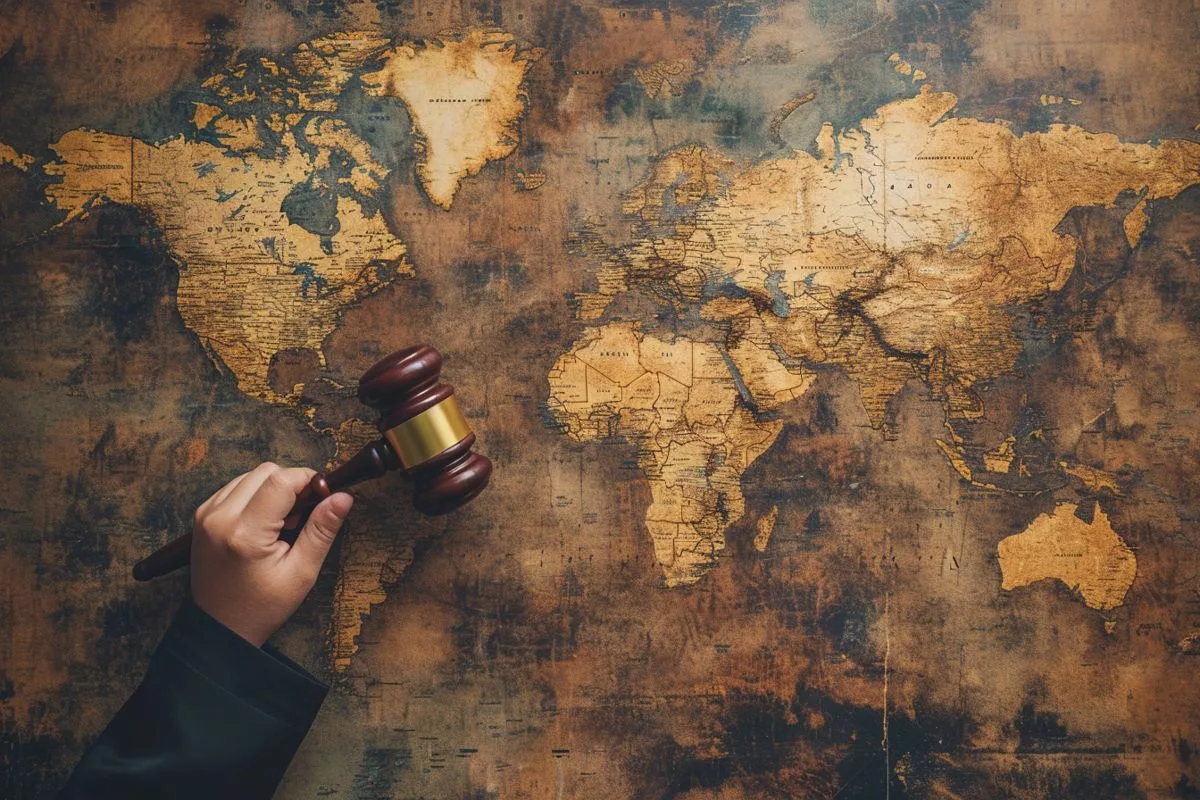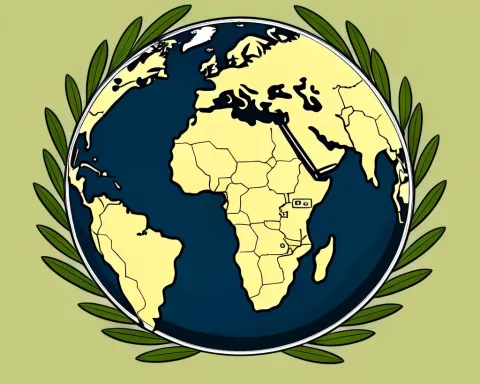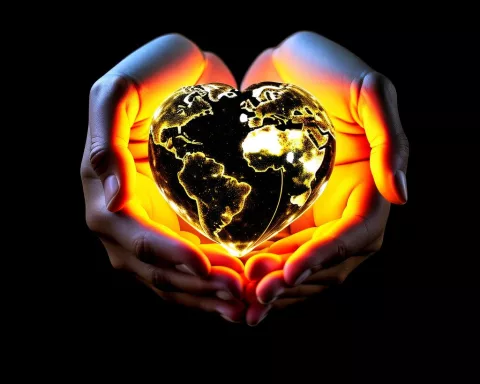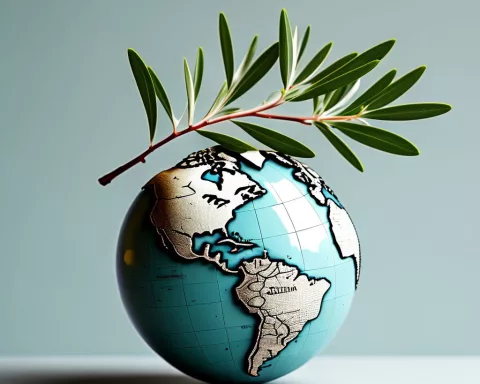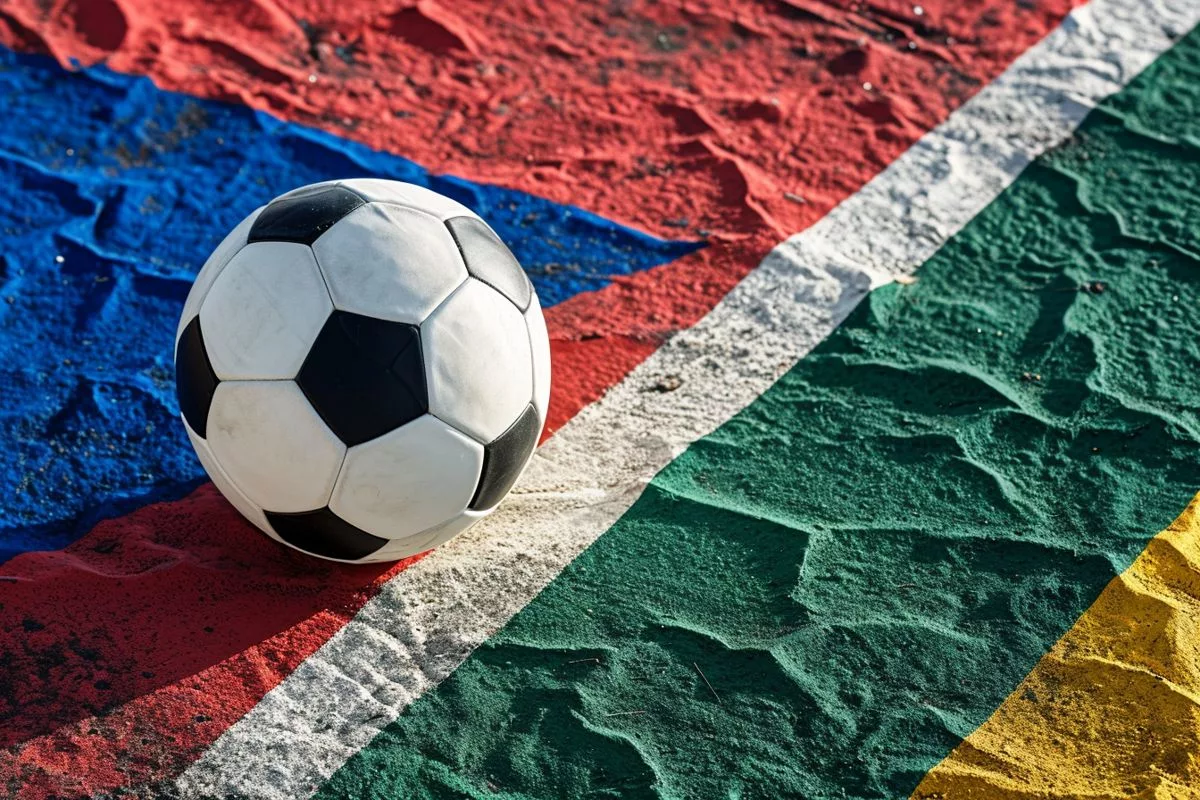South African President Cyril Ramaphosa has stated that it is South Africa’s moral responsibility to bring Israel’s military actions against Hamas in Gaza to the attention of the International Court of Justice (ICJ) as he believes that there is genocide taking place in Israel. Ramaphosa’s decision is rooted in South Africa’s commitment to human rights, which he believes is a cornerstone of their international identity. He has also criticized the newly launched Umkhonto weSizwe party, which has the backing of former President Jacob Zuma, and reiterated the ANC’s leadership role in the country.
South African President Cyril Ramaphosa has declared that it is South Africa’s moral duty to bring the issue of Israel’s military actions against Hamas in Gaza to the attention of the International Court of Justice (ICJ). According to Ramaphosa, there is genocide taking place in Israel, and they need to provide answers. South Africa’s commitment to human rights is the cornerstone of their international identity.
South Africa’s Duty to Human Rights
South African President Cyril Ramaphosa has made a significant statement, insisting that it is South Africa’s moral duty to bring the issue of Israel’s military actions against Hamas in Gaza to the attention of the International Court of Justice (ICJ). This bold declaration, which centers around a claim of genocide committed by Israel, was made during the 112th anniversary celebrations of the African National Congress (ANC) in Mbombela.
President Ramaphosa’s decision to bring this matter before the ICJ is rooted in South Africa’s staunch commitment to human rights. This commitment is a cornerstone of South Africa’s international identity, he believes. According to a Times Live report, he stated to party affiliates, “We serve as a benchmark for the world on human rights matters. We also set a precedent in standing firm on an issue of principle to support the struggles of others who are facing similar challenges that we have confronted.”
In President Ramaphosa’s address, the similarities between the struggles endured by the Palestinians and South Africa’s own tumultuous past are clearly evident. In shedding light on the harsh realities of the conflict, President Ramaphosa asserted, “The Palestinian people are being bombed, they are being killed, and there is apartheid in Israel.” In his view, South Africa has a responsibility to rise, voice their opposition, and extend their support to the Palestinians.
The Case Against Israel
Furthering his argument, Ramaphosa explained South Africa’s decision to take the matter to the ICJ. In his words, “That is the reason we have brought the government of Israel before the ICJ. They need to go there and provide answers, as there is genocide taking place in Israel.”
His words are imbued with a courageous defiance as he recognizes the potential risks associated with this position. He acknowledged, “We do this, and some argue it’s a gamble. We are a small nation with a relatively small economy, and they could retaliate against us, but we stand firm on principle.” To him, the essence of their freedom is not confined to their own liberation, but also encompasses the freedom of the Palestinian people. He firmly believes that their own freedom isn’t genuine unless the Palestinians are free too.
This belief, he insists, is rooted in the teachings of Nelson Mandela, revered as the “father of democracy” in South Africa. He further stated, “We were educated by the great Nelson Mandela, which is why we support them. This is why we have such a progressive foreign policy now, one that enables us to intervene to uphold the principles we were taught, even in very distant nations.”
South Africa’s Stand on New Parties and Global Issues
Ramaphosa’s speech also included a critique of the newly launched Umkhonto weSizwe party (MK), which has the backing of former President Jacob Zuma. Zuma has been actively promoting the MK party, regarded by many as a breakaway group of the ANC. “The ANC has demonstrated its capability to lead through its experience, leadership, and structure,” Ramaphosa stated, indirectly challenging the credibility of the new party.
In conclusion, the position assumed by President Ramaphosa is a manifestation of South Africa’s dedication to human rights and its staunch faith in justice. It stands as a testament to the country’s ongoing development amidst multifaceted global problems. Lastly, it emphasizes the ANC’s leadership role, underscoring its experience, structure, and cherished principles.
What did South African President Cyril Ramaphosa state about the Israel-Palestine conflict?
President Cyril Ramaphosa has stated that it is South Africa’s moral responsibility to bring Israel’s military actions against Hamas in Gaza to the attention of the International Court of Justice (ICJ) as he believes that there is genocide taking place in Israel.
Why does President Ramaphosa feel it’s South Africa’s duty to bring the issue to the ICJ?
According to Ramaphosa, South Africa’s commitment to human rights is the cornerstone of their international identity, and they need to provide answers to the claim of genocide committed by Israel.
What similarities does President Ramaphosa draw between the Palestinian conflict and South Africa’s past?
President Ramaphosa drew similarities between the struggles endured by the Palestinians and South Africa’s own tumultuous past. In his view, South Africa has a responsibility to rise, voice their opposition, and extend their support to the Palestinians.
Why did President Ramaphosa criticize the Umkhonto weSizwe party?
President Ramaphosa criticized the newly launched Umkhonto weSizwe party, which has the backing of former President Jacob Zuma, and reiterated the ANC’s leadership role in the country. He indirectly challenged the credibility of the new party.
What does President Ramaphosa believe is essential for South Africa’s freedom?
President Ramaphosa firmly believes that their own freedom isn’t genuine unless the Palestinians are free too. This belief is rooted in the teachings of Nelson Mandela, revered as the “father of democracy” in South Africa.
What message does President Ramaphosa’s speech convey?
President Ramaphosa’s speech conveys South Africa’s dedication to human rights and its staunch faith in justice. It emphasizes the ANC’s leadership role, underscoring its experience, structure, and cherished principles.

